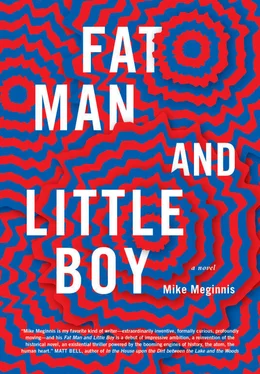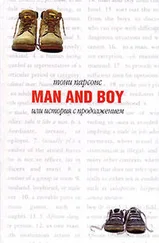It was common to study the aircraft and other military assets of Japanese and foreign armies alike. Masumi read descriptions of the sounds the planes made as they flew overhead. He was especially interested in the “screamers,” German fighters with noisemakers in their noses that shrilled, striking horror in their victims. He was also fascinated by missiles, and the German super-guns, the former exceedingly practical, the latter gaudy and terrifying, wasteful in a way that made them seem somehow more immoral than other weapons.
Firebombing held no mystery for him. It was a stupid way to kill another person. No risk, no romance, only a city become an oven.
Masumi was taught it was shameful to surrender. It was beyond the pale. One of the first things the military taught him was how to shoot himself with his own rifle, planting its butt in the earth, putting the barrel in his mouth, and pulling the trigger with his foot. It was preferable to charge the enemy in a way that gave them no choice but to kill you. If they could not be persuaded to kill you, then you would have to do it yourself. Under no circumstances could a Japanese soldier be taken prisoner. There was nothing worse. When soldiers questioned these rules, they were savagely beaten. Most did not question the rules.
When it was becoming clear the U.S. would win, the Japanese began the kamikaze.
Masumi’s class was given a presentation on the necessity of victory and the power of the Japanese spirit. A plan was laid out before them, without euphemism but somehow still indirect, circular. The words were true but their tone was not true. It held hope. The plan was to take planes and fly them into American ships. This would make the pilots heroes. It would also, it was hoped, inflame the Japanese spirit, bringing courage to the surviving soldiers and fear into the Americans.
It would be strictly on a volunteer basis.
The students were lined up side to side, single-file, and blind-folded, so no one would be ashamed to raise his hand if he did not want to die or if he was afraid. Of course they could hear their fellows raise their hands when the call to service came. Masumi raised his hand not out of cowardice but because it was what he believed.
They took him to an air base and they trained him in flight. No one pilot got his own plane; they shared, swapping freely. It was therefore inaccurate to say Masumi was learning to fly his own coffin. This was, however, how he felt. It took the thrill out. And there was always the possibility he would die prematurely, whether from his superior officers’ regular beatings, or from crashing his plane during training. Some students did that.
Masumi lost weight. He took an interest in Communism, not as a movement but as an explanation of what had already gone wrong. From this high moral vantage he could see that history moved in its chosen direction at its own speed, and that there was little one could do about it one way or the other, with the possible exception of those lucky few who sped its progress. If he was very lucky then he might be one of those. It was his hope that his death would not only benefit Japan but hasten its becoming a Socialist state. Otherwise, if it did no good, then at least he knew his death could do very little harm. A superior officer found one of his Communist books among his things and put a knife to his throat. Masumi was prepared for this experience by his fight with Hideki, and also by the beatings, and also by his belief that he no longer cared if he lived or died. When the officer saw surrender in his eyes he spat on Masumi, saying he should put the knife into his own body if he loved his country.
Masumi did not see the point in dying if he could not kill an American or sink an American ship. The army had invested time and food and other resources in preparing him to do these things. It would be a waste to kill himself otherwise. He explained this in a calm, even tone. The officer let him live. He took the book, however, cutting out the pages with his knife, stomping them, and emptying his canteen on their ruins.
He came back to Masumi and broke several of his fingers.
Masumi’s parents wrote to him. They said they had learned where he was. They said they wished they had heard it from him. They asked had he heard from his brother. There were rules meant to keep a family from losing all its sons but sometimes the rules might not be followed closely, or there might be a mistake, especially as the military grew desperate. They asked him was he eating well. They asked him was he beaten often.
He wrote back to say he was fine. He was proud to die for their safety. He was not beaten excessively. He did not know where Hideki was.
The kamikaze were mostly ineffective. Many were shot down before they could reach their targets. Others hit their targets but did little damage. Some did sink their ships. There were announcements. The Americans were disturbed. That was something. Although sometimes it seemed they were laughing. Not frightened so much as amused.
Still there was a craze for kamikaze in the military. Every general felt pressured to create his own. The navy made speed boats loaded with explosives for the purpose, and frogmen who would swim to plant explosives on the undersides of ships. There was also the one-man submarine. It was about the size of a torpedo. You could barely fit one person inside it. He didn’t have a lot of air because he didn’t need a lot of air. He didn’t have a lot of fuel because he didn’t need a lot of fuel. The idea was you launched the submarine out of the torpedo tube. Then the pilot would ride it into the side of a ship.
There are a hundred ways to make a man into a bomb.
Masumi got a letter from his brother with a list of readings. There was a technical manual on a machine Masumi didn’t recognize. There was a history of Buddhism. Beside the technical manual’s name Hideki wrote, “A Son’s Resignation.”
Beside the Buddhist history, a word or short phrase crossed out so many times it was illegible. No poems.
It was time for Masumi to crash his plane. They gave him little fuel. He flew with a picture of his mother. His parents had sent it for that purpose. They had also enclosed a picture of a girl Masumi never met—one they said he would have liked. She was holding a paper fan over her mouth, peeking out above it. The paper fan was painted with pink blossoms. They said he could think of her as his reason. He left that picture in the barracks.
He meant to die.
He flew out until half his meager share of fuel was gone. There was nothing on the water to crash into. He returned to the base. They broke his arm and made his eyes swell shut.
Two weeks later, when he had healed enough, they sent Masumi up again. Again, he meant to die. He imagined his death as the one that would turn the tide. He would sink a destroyer or perhaps a carrier. As the water rushed into the hull’s breach, so would the Japanese empire rush into American soil, leveling the movie theaters, the malt shops, the liquor stores, the pornography rackets. They would destroy all obscene art and low culture. As a result, two hundred years from now, the people’s revolution would be made real. The happy offspring of a Japanese-American union would parade golden and wise. They would spin noisemakers and play rustic arrangements of “Ode to Joy” and other fine humanist works. They would never know who made it possible—which diving plane, which sinking ship.
There were no ships. No targets. Masumi returned home and threw himself on the ground. His chin scraped the pavement, and he bled as they kicked him on his legs and stomach, careful this time to avoid the arms. He bruised and tendered. His skin was marked up a spectrum of yellow, red, blue, purple, black. They said they would send escorts next time in spite of the expense. This was becoming necessary more and more often. He wondered if they would shoot him down if he turned back. Wouldn’t it make more sense to kill him once he’d landed the plane, so someone else could use it? The Americans were already taking down enough Japanese planes.
Читать дальше












